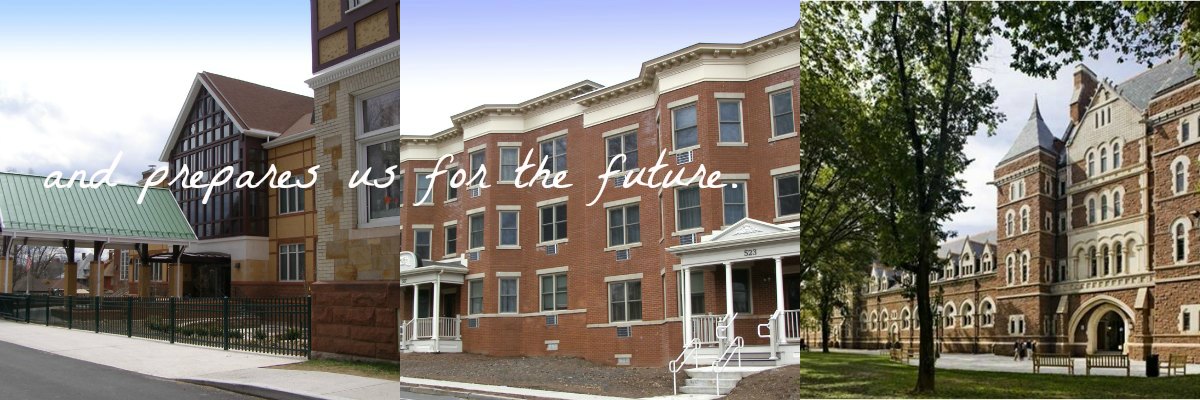In our determination to save the Comet Diner I have tried to find the words to encourage the public, the City of Hartford and surely the community of Asylum Hill that the preservation of an icon is greater than just bringing the diner back to life. The challenge centers around the fact that the diner was trucked to the site in 1948 so why not send it back down the road to somewhere else? This is a logical and a reasonable solution for historic preservation of the building. Let’s ignore the cost and issue of finding a new home which these suggestions fail to explore. (Ever moved a building in a city, it’s very expensive.) For me the question is what is lost by creating yet another vacant lot? More to the point what does this mean to Asylum Hill and the Farmington Avenue corridor as it loses an icon that so many people identify with as a destination they loved. Have you ever asked yourself “where is the Comet”? I would suggest that the diner is among a very few landmarks to be found along Farmington Avenue which are instantly identifiable. Think about it.
Historic preservation is all about community economic development in The Preservation Alliance’s strategic plan. The Courant called it sentimental to preserve the Comet but throughout the US many cities are basing their redevelopment strategies on the foundation of historic buildings. As Hartford struggles to recreate a vitality, hats off to the Downtown, what of the neighborhoods? Luke Bronin has repeatedly spoken about the priority to reestablish the commercial corridors of the city. What was the outcome of demolishing so many historic buildings along Main Street, Downtown Dry Gulch. Time and again in Hartford the immediate decision to get rid of the past is sacrificed to a long term strategy for a comprehensive community plan. Farmington Avenue and the Asylum Hill Neighborhood created such a comprehensive plan which is based on the preservation of historic neighborhood structures. Principle among these is the Comet
A recent post on Facebook basically asked the question regarding the aspirational goals of Hartford? Where is the road map, what is the desired future for this city with such an amazing past? Perhaps I am taking the post too far but I immediately thought about the Comet, the effort to preserve it and the future of Asylum Hill? Sure the preservation of the amazing diner has a cost. In consideration are several options to reuse the diner offering food and access to food which brings the diner full circle acting once again as a beacon to hungry people in Hartford. For those of us who frequented the place, for more reasons than having breakfast, it housed one of the best bars in town; we are reminded of the theme song from “Cheers” which said “where everybody knows your name”. Can there be any better definition of placemaking than having an urban identity?
So yes, to what do we aspire? Surely waving goodbye to the diner on a flatbed can be accomplished as a form of historic preservation but what replaces the destination? Do we gather at the CVS, a Walgreen’s, a Delta Dental? My belief is that the urban neighborhood of Asylum aspires to something better than another drive-through box. In all humility the City of Hartford hungers for the aspiration to a greater strategy brought about through comprehensive community planning. I hope that you might have an opinion about this so please share with us.







Hartford and the Hartford Courant both need to take a lesson from Barbara Capitman. Who is Barbara Capitman you ask? She is the one woman who spearheaded the movement to save South Beach in Miami from the wrecking ball. Now people from all over the world visit the place to see all the art deco buildings along Ocean Drive as well as along other streets. Think about that, Hartford
Frank you are right. What ties a community together is shared memories.
I have been in Hartford for 30 years and the Comet is one of the
Few remaining touchstones.
Thanks for your comments. We feel that planting a flag on the meaning of historic preservation is greater than simply preserving a building. On a national level it is efforts like this which have sparked a renaissance. Buffalo is an outstanding example.
Demolition is not a solution but is an inevitable outcome for all publicly held Hartford real estate for one simple reason: t has no book value and represents liability and expense. The same could be said for every building the city owns, from schools to fire stations to City Hall. To reduce expenses, tearing down equals savings. The solution would be to auction off the Aetna Diner, and subsidize its operation as if it were a giant food truck. It has to compete with the other fast food outlets in the city – the company cafeterias – while overcoming the fear factor created in the neighborhood due to the perception of a high level of crime and presence of panhandlers and daytime residents of the many halfway houses in the city. If demolition should happen it should be to tear down the nearby Taco Bell and Dunkin’ Donuts, and expand the diner parking lot.
Thanks a lot for your comments and observations. The Comet is not owned by the City, it is privately held. We have been working on just how to reuse the diner once again for purposes of bringing food, good food, back to Farmington Avenue. Throughout the US adaptive reuse of historic buildings has brought about dramatic urban change. We believe that such an effort to rejuvenate the Comet has the potential to bring about community economic growth for Asylum Hill.